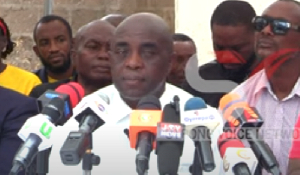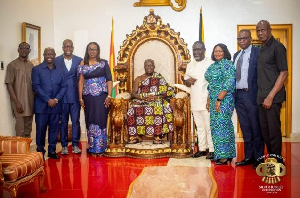Opinions of Friday, 17 April 2020
Columnist: Francis Wood
Ghana post coronavirus
So much speculation is expressed in relation to Covid19, much of which sheds little light on questions we can ask of Ghana. Is leadership in its components of governance structures prepared to address the complexity of issues facing Ghana going forward? Can infrastructure, physical and societal, be managed and administered in ways that will advance national objectives? How might communities nationwide be invited into an alignment with possibilities for advancement of society? How can the sacrifices borne by the less fortunate on one hand, and the well-heeled on the other, be acknowledged? How can Ghana's development agenda make progress against the headwinds of external friction and internal drag?
To address these and other issues requires an appreciation of circumstances fundamental to Ghana, a process that's readily avoided by looking eagerly elsewhere. So, Singapore is often suggested as a model for development. Yes it is and yes, Lee Kuan Yew came to the fore; but Ghana hasn't the sort of harbour that made Singapore so prized as a trading hub. Dubai is sometimes similarly cited, but that Emirate's ruler devised a survival strategy founded on developing its old fishing harbour to become a major trading hub, financing progress with the assistance of its oil-rich sister emirate Abu Dhabi. Ghana is a nation of people, blessed with her balance sheet of assets and obligations, inhabiting its place in time with her own history about which to be proud. After 60 years and into the Fourth Republic, it would be a blessing for leadership to emerge that looked introspectively and comprehensively at Ghana's possibilities and how to achieve them.
Ghana ought to embark on a fundamental and strategic re-orientation: engage more actively countries with which Ghana has much in common (e.g. regionally; Cote d'Ivoire, its cocoa-growing neighbor); countries with which Ghana shares underlying economic characteristics (e.g. agriculture and minerals, say Australia); countries with which common interests can translate into leverage internationally. Rather, Ghana with her 30 million inhabitants can't resist the temptation, for precedent, of referencing the U.S., a country almost 200 years older with 10 times as many people. Along with much of Africa, Ghana holds out a welcome mat to China for supply of products and services, and at a distribution of spoils in exchange that isn't easy to assess.
Progress requires fuel (i.e. funding) and friends (i.e. allies). It is reported at this writing that the G20 has agreed some form of welcome debt relief for developing economies. We will have to see where Ghana, a self-proclaimed middle income economy, stands in the queue. Ghana managed to get its $3bn Eurobond issue away early this year but has had to resort lately to IMF/WB for $100mn covid funding and $1bn RCF (Rapid Credit Facility). As if nothing has been learned from crowing about investor over-subscription for the Eurobond issue, a Minister proclaims in the media that Ghana is among the first countries to be granted its $1bn RCF, as if being first is a solution to the virus or deaths it may bring.
Time does not demand perfection. History tells tales about sovereign triumph (e.g. landing on the moon), sovereign hubris (e.g. the Nazi regime), sovereign intransigence (e.g. Japan), sovereign ruthlessness (e.g. apartheid), or sovereign persistence (e.g. formation of Israel). History also records the plight of what are referred to as native peoples, their objectification, their bondage, their surrender, their decimation, and their acceptance. The history of the Gold Coast and Ghana is very rich and, to me, readily lays the the foundations for coalescing a strategy for development after covid19 releases its grip.













